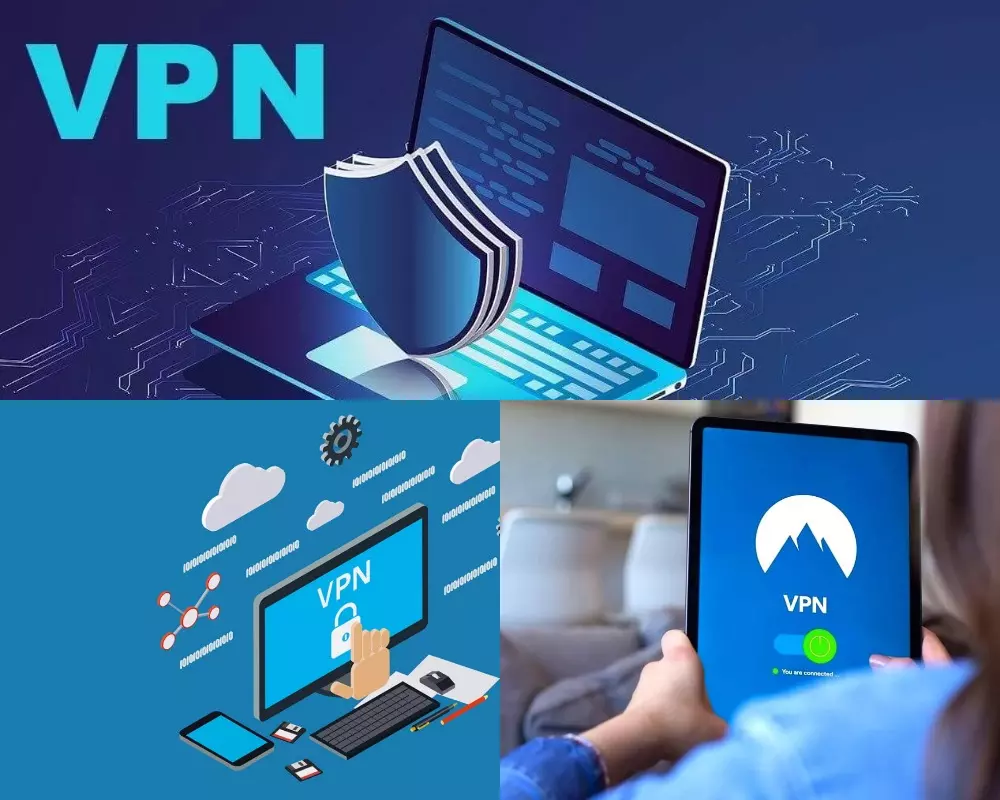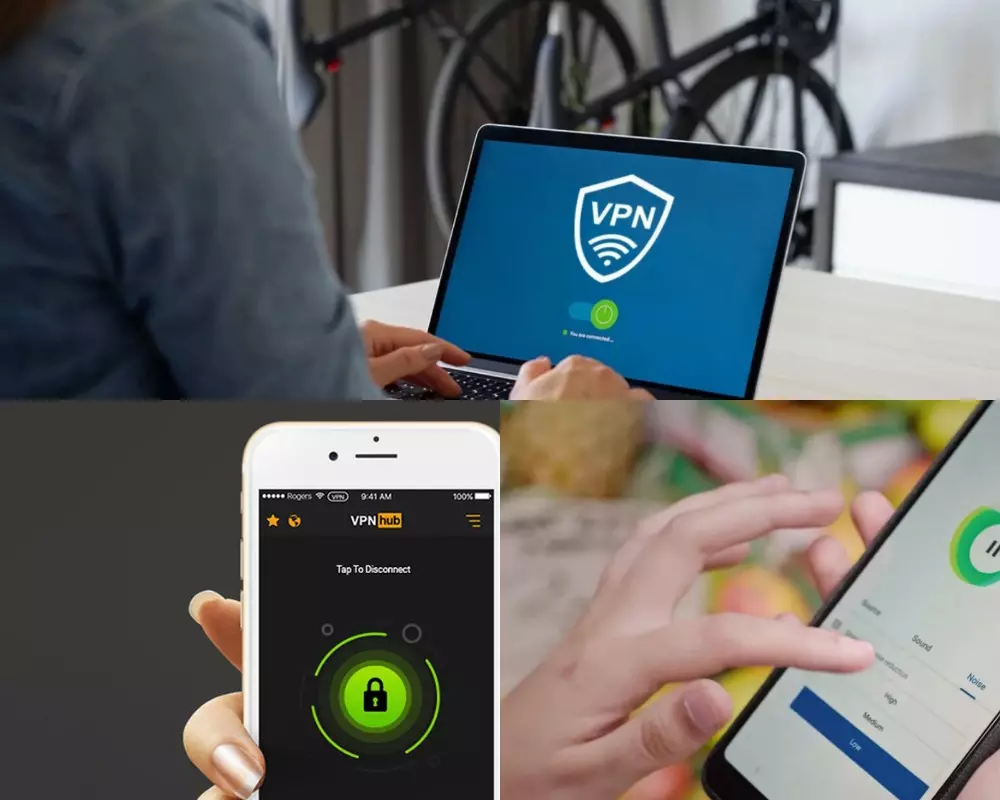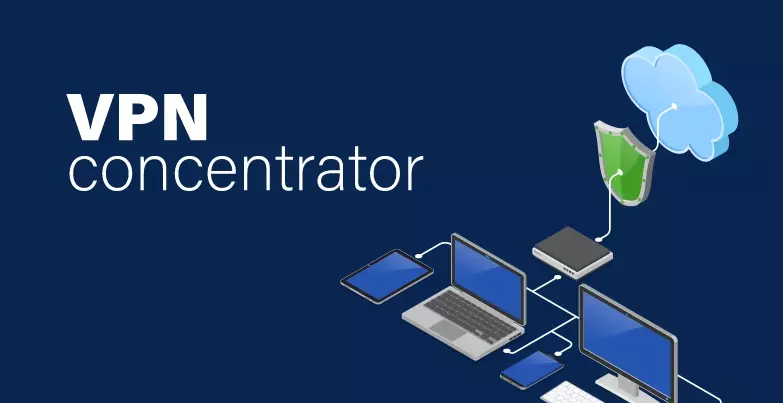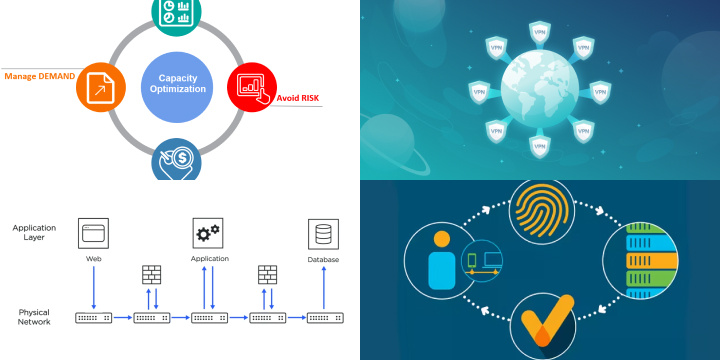The increasing prevalence of remote work makes the companies look for advanced ways to ensure their operations’ security. Businesses need to provide the employees’ home devices with the same protection level as corporate technology has. An effective way to achieve this goal is the use of VPN concentrators. This article will help you better understand what this technology is and how it can help your business.
What is a VPN concentrator?
A VPN concentrator is a device designed specifically for creating and managing VPN communication infrastructures. It provides the secure VPN connections between a set of nodes. At its core, it is similar to a router with enhanced security and power that handles a large number of remote connections through VPN tunnels. A VPN concentrator integrates a set of devices into one network protected from external intrusion and tracking.
What does a VPN Concentrator do?
A VPN concentrator ensures the safety of connections and their transition across the potentially dangerous networks without the risk of data’s abduction. Each of the VPN tunnels functions independently, which provides the users with freedom within the network while protecting their privacy and safety. Therefore, a concentrator creates a secure multi-user environment within a single VPN network.

VPN concentrator is designed for creating and managing VPN communication infrastructures
When considered in more detail, the functions of a VPN concentrator may be defined as follows:
- Creation of multiple VPN tunnels within a single network.
- Authentication and authorization of users.
- Assigning IP addresses to the network’s users.
- Encryption and decryption of data.
- Providing end-to-end encryption of data moving between remote clients and a centralized network.
Who uses it
The primary users of VPN concentrators are organizations operating multiple systems connected through various networks. What can these devices bring to such companies? The essential features that make them useful for businesses include increased security and support for multiple users. Through them, VPN concentrators provide employees with safe and convenient access to the Internet anywhere, making them especially relevant for companies whose employees work remotely. When network users enter them through remote access software, there is always a chance of external attacks. VPN concentrators ensure that the company’s local network remains protected from external threats and that the secure tunnels transmit only encrypted data. Given the above characteristics, VPN concentrators may be most useful for companies whose employees work within a single network, especially when it comes to remote access to workplaces.

VPN concentrator is by organizations operating multiple systems connected through various networks
VPN Concentrator vs VPN router
VPN concentrators are often confused with VPN routers. However, despite some similar features, these are different devices. A VPN router is a piece of hardware with VPN pre-installed directly on them. As a result, all devices that connect to these routers immediately connect to the protected VPN network. Routers are a more convenient and reliable alternative for installing VPN clients on each device separately.
What primarily makes VPN concentrators different from routers is the magnitude of their power. Concentrators can support thousands of VPN clients by uniting them into a single integrated network. They also serve as connection points for remote devices that do not have to be within the router’s physical reach. Not to say that the concentrators have higher security levels and apply additional measures to ensure the most effective data encryption.
Thus, although their general purpose is similar, a VPN router and a VPN concentrator operate on different principles. As a result, the former is suitable for use at home and in small businesses, while the latter is perfect for large-scale organizations with many remote workers.
Configuring and Managing a VPN Concentrator: Best Practices and Considerations
A VPN concentrator is a critical component in building secure and efficient virtual private networks. To ensure its proper functioning and the security of your network, it’s important to follow best practices and consider key factors during configuration and management.
- Understand Your Network Requirements: Before configuring a VPN concentrator, thoroughly assess your network needs. Determine the number of concurrent users, expected traffic volume, and the types of VPN protocols required.
- Choose the Right VPN Concentrator: Select a concentrator that aligns with your network’s capacity and security requirements. Consider factors like scalability, throughput, and compatibility with your existing network infrastructure.
- Security Configuration: Implement strong security measures. Ensure that the concentrator supports the latest encryption standards and authentication methods. Regularly update firmware to address security vulnerabilities.
- Network Segmentation: Segment your network to isolate VPN traffic from other network traffic. This enhances security and prevents potential breaches from affecting the entire network.
- Logging and Monitoring: Configure comprehensive logging and monitoring systems to track VPN activity. This helps detect anomalies and potential security threats.
- Load Balancing and Redundancy: Implement load balancing and redundancy to distribute traffic across multiple concentrators. This ensures network availability even if one device fails.
- User Authentication: Use strong user authentication methods, such as multi-factor authentication (MFA) or certificate-based authentication, to enhance security.
- Quality of Service (QoS): Prioritize VPN traffic with QoS settings to ensure a consistent user experience, especially for applications with high bandwidth requirements.
- Maintenance and Updates: Regularly update and patch your VPN concentrator to protect against known vulnerabilities. Conduct routine maintenance to optimize performance.
- Documentation and Training: Maintain detailed documentation of your VPN configuration. Train IT staff on managing the concentrator and responding to potential security incidents.
- Compliance: Ensure that your VPN configuration complies with relevant industry regulations and standards, especially if you handle sensitive data.
- Disaster Recovery and Backup: Establish robust disaster recovery plans and backup procedures to minimize downtime in case of unforeseen events.
In conclusion, configuring and managing a VPN concentrator requires careful planning, a focus on security, and adherence to best practices. By following these guidelines and considering your specific network needs, you can create a secure and efficient VPN environment that meets both your operational and security requirements.
The most popular VPN concentrators
As in the case of VPN providers, the VPN concentrators market is characterized by numerous competing players. The functional value (and, consequently, the price category) of concentrators depends on their working capacity and the number of tunnels they are able to support. Today, the following brands are the most popular in this technology niche:
- Cisco Meraki
- ShoreTel
- Aruba

The most popular VPN concentrators
At the same time, many other companies are also involved in this market, which demonstrates its high significance and considerable development prospects in today’s world, where information is no less critical asset than material resources.



